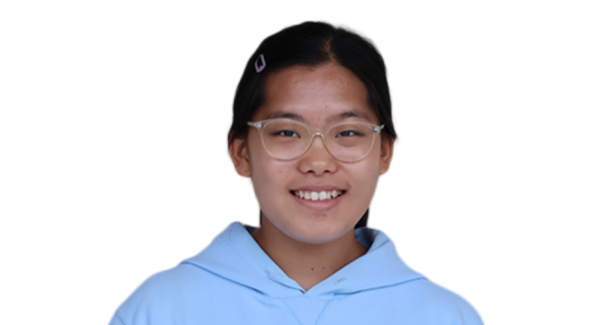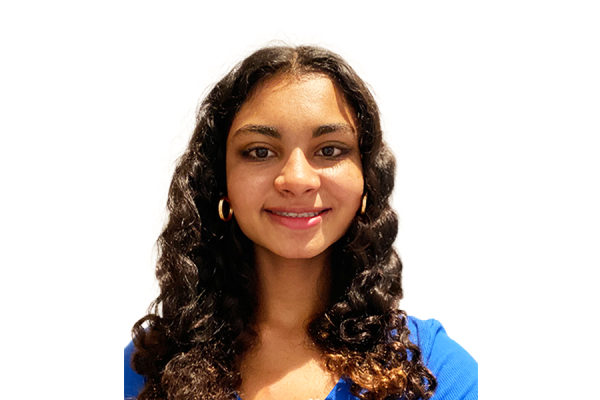The United States Department of Education’s Office for Civil Rights (OCR) has warned 60 colleges and universities that they could face penalties if they don’t follow Title VI of the Civil Rights Act of 1964, which ensures that Jewish students have equal access to education and campus resources without discrimination or harassment.
However, despite these protections, many Jewish students still experience exclusion.
The rise in antisemitic incidents on college campuses began after attacks on Israel were made by the terrorist group Hamas on Oct. 7, 2023. Since then, Jewish students attending universities in the United States have faced increasing harassment and violence, making them feel unsafe in classrooms, dorms, and student activities. Critics say that many university administrators have not done enough to address the issue.
In its letter to universities, the United States Department of Education (ED) said that antisemitic discrimination must be treated the same as other civil rights violations. Craig Trainor, the acting assistant secretary for civil rights, stated that past administrations did not handle complaints properly, which allowed threats and harassment against Jewish students to continue.
“The Trump administration will not allow antisemitic protesters to take over campuses and intimidate Jewish students and staff without consequences,” Trainor said in a statement.
In response, the ED has started investigations at five universities where antisemitic harassment was widely reported. On March 7, the OCR also promised to address a backlog of complaints about antisemitic violence that was previously ignored. One of the biggest actions taken was cutting $400 million in federal funding to Columbia University for not protecting Jewish students.
Education Secretary Linda McMahon said that universities must follow anti-discrimination laws if they wish to continue receiving public funding.
“Colleges and universities benefit from taxpayer dollars, but that support is a privilege, not a right. Schools must fully comply with anti-discrimination laws to continue receiving federal funds,” McMahon said in a statement.
Student Perspectives on the Investigations
Lois Yoon, a senior at the University of Southern California (USC), was caught off guard when she found out her school was under investigation.
“I actually did not know that USC was under investigation, but I think USC does a pretty good job of not being antisemitic,” Yoon said. “Since a lot of the rich people in LA are Jewish, I heard that a lot of USC funding comes from Jewish families, so a lot of big decisions and such are actually made by these families.”
However, Yoon said that this financial influence has sparked controversy on campus.
“Some students argue that USC only supports Jewish students because a lot of our funding comes from their parents,” Yoon said. “There was controversy around our valedictorian speech from last year. Our valedictorian, who is Muslim, wasn’t allowed to speak at graduation because of all the Palestinian protest stuff that was going on at our campus. Some students argued that USC was trying to silence other minorities and further push the Jewish students above the rest, again because of money.”
Yoon also recalled an event where Jewish students gathered on campus under the protection of officers.
“I haven’t personally encountered anything, but I remember that there was a Jewish event on campus where a ton of Jewish students came, and police were standing guard and protecting them,” Yoon said.
When asked if USC could do more to address antisemitism, Yoon said that she believes the issue is complex.
“There are so many diverse parties and minorities on our campus. If USC were to further highlight Jewish students, there are other minorities that may feel hurt and vice versa. I think USC has already publicly done what they can to show their support,” Yoon said.
Antisemitism in High Schools
Max Oestreich, the Jewish Club president at Carlmont High School, has witnessed antisemitism in his community and heard troubling stories from friends at nearby schools.
“I have friends at San Mateo High School and Hillsdale High School who have faced waves of antisemitism, including swastika graffiti and antisemitic tropes like ‘Jews like money’ and ‘should pick up coins off the ground,’” Oestreich said. “Personally, I have experienced very little antisemitism at Carlmont, but outside of Carlmont, I have seen antisemitic stereotypes that make me feel uncomfortable.”
However, one incident at Carlmont stood out to him.
“A friend’s friend was with us at lunch one day and said ‘Heil Hitler’ while doing the Nazi salute. He was trying to make it seem like a joke, but it made me really mad and uncomfortable being around this person,” Oestreich said.
These experiences have shaped how Oestreich navigates his identity.
“My experience with antisemitism has impacted how I live socially. Sometimes, I’ve hidden my Judaism instead of being proud of it. I have now grown into being proud of being Jewish publicly, even though in the back of my mind, I still fear not being accepted or being bullied because of it,” Oestreich said.
Oestreich said that he believes the issue is particularly pronounced in college-level education.
“The stigma against Jewish students is very present today, especially in college, where protests against Israel have made Jewish students feel unsafe and unwelcome on campus,” Oestreich said. “Carlmont is a rare case of acceptance and pride in being Jewish, but I know that San Mateo High School has a very bad antisemitism problem and is currently in legal trouble because of staff and students being antisemitic toward Jewish students and Israel.”
Educator Insights on Antisemitism
Andrea Struve is a current Advanced Placement (AP) Seminar and Research teacher at Carlmont. In college, Struve interned at the Jewish Family and Children’s Services (JFCS) Holocaust Center as a University Fellow, learning how to be a genocide educator and scholar. She returned to the JFCS Holocaust Center as the Director of Education in 2021. While there, Struve, amongst many things, was responsible for creating the Incident Response Guide for Antisemitism for the Bay Area Administrators.
“I was the lead project manager and worked alongside partner organizations that also worked to combat antisemitism to develop a response guide to support the work already being done in schools. The reason for the guide was that we noticed a large uptick in antisemitism following Oct. 7, and both teachers and administrators did not know where to go to both report it and address it actively,” Struve said.
Struve says that after the response guide was implemented, it was well received. She emphasizes the importance of spreading awareness, as it is the key to helping protect Jewish communities. Teachers like Struve show that antisemitism is a serious issue and that finding effective solutions, such as the response guide, is urgent.
Erik Migdail, an Advanced Placement (AP) Language and Composition and English 3 teacher at Carlmont High School, has not encountered direct antisemitism in his professional career but has seen it firsthand in school settings.
“The closest direct experience was when a federal mandate required the recitation of the Pledge of Allegiance daily at all public schools,” Migdail said. “At a faculty meeting, I voiced my objection to the phrase ‘under God’ in the Pledge, as it violates the constitutional separation of church and state. Another teacher responded that she didn’t see why I should object since the United States was founded as a Christian nation. That comment implied that I had a lesser status as a citizen, and my colleague was entirely unable to comprehend what I was saying.”
Migdail said that he believes antisemitism is not treated with the same urgency as other forms of discrimination.
“Words and actions directed against Jewish students have been threatening and vile in ways that would not be tolerated when directed against other groups of students,” Migdail said.
He also believes universities must take clearer action.
“Campuses are starting to respond, but the issue has grown significantly since Oct. 7. The difficulty is distinguishing between Judaism, Zionism, and political criticisms of Israel. Universities struggle with differentiating protected speech from antisemitic rhetoric,” Migdail said.
Migdail advocates for firm policies treating antisemitism like any other hate speech.
“There needs to be a clear policy that antisemitism will be treated as hate speech, with consistent enforcement of those policies,” Migdail said.
While some universities have introduced antisemitism awareness programs, Migdail remains skeptical of their effectiveness.
“Awareness is good, but it will only work if people are open-minded and willing to grow,” Migdail said.














